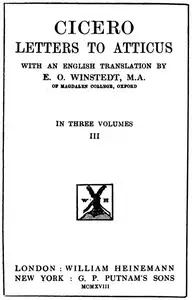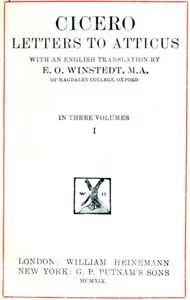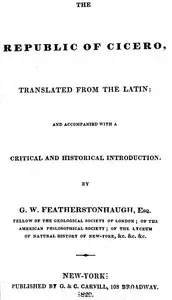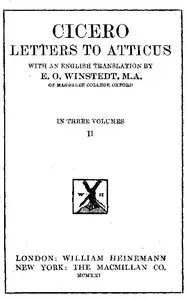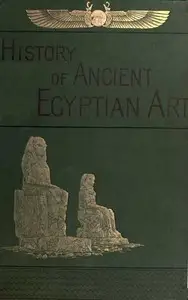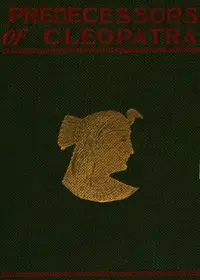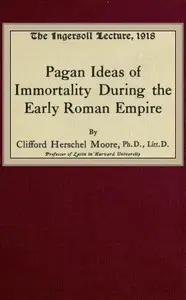"Cicero's Tusculan Disputations" by Marcus Tullius Cicero is a philosophical exploration from ancient Rome where the author grapples with profound questions about death, happiness, and virtue through a series of engaging dialogues. Triggered by personal loss, Cicero seeks to ease anxieties about death by suggesting it shouldn't be an evil, diving into beliefs about life and morality with his friends. Using questions and discussion, Cicero and his companions challenge common ideas about death and suffering, setting the stage for further discussions on key philosophical concepts.

Cicero's Tusculan Disputations Also, Treatises On The Nature Of The Gods, And On The Commonwealth
By Marcus Tullius Cicero
Amidst sorrow, a Roman philosopher and his friends ponder life's biggest questions, seeking comfort in virtue and challenging fears about the unknown.
Summary
About the AuthorMarcus Tullius Cicero was a Roman statesman, lawyer, scholar, philosopher, writer and Academic skeptic, who tried to uphold optimate principles during the political crises that led to the establishment of the Roman Empire. His extensive writings include treatises on rhetoric, philosophy and politics. He is considered one of Rome's greatest orators and prose stylists and the innovator of what became known as "Ciceronian rhetoric". Cicero was educated in Rome and in Greece. He came from a wealthy municipal family of the Roman equestrian order, and served as consul in 63 BC.
Marcus Tullius Cicero was a Roman statesman, lawyer, scholar, philosopher, writer and Academic skeptic, who tried to uphold optimate principles during the political crises that led to the establishment of the Roman Empire. His extensive writings include treatises on rhetoric, philosophy and politics. He is considered one of Rome's greatest orators and prose stylists and the innovator of what became known as "Ciceronian rhetoric". Cicero was educated in Rome and in Greece. He came from a wealthy municipal family of the Roman equestrian order, and served as consul in 63 BC.


